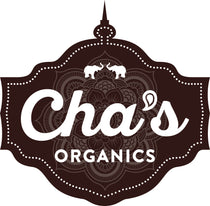One Percent For The Elephants

Planet Earth is home to an incredible number of diverse life forms that together form complex ecosystems of enormous beauty and value. Each species has something unique to offer, and in the delicate balance between all can be found the dynamic equilibrium that fosters life. For thousands of years, humans existed as a keepers of this equilibrium, understanding that our species is one of many and that all life is precious and worthy of respect. Sadly, in more recent times, this sacred knowledge has been lost, swept aside, in the name of that intangible thing we call progress. Only, when looked at objectively, it is obvious that this progress we speak of is actually a progression towards a more devolved state of humanity - one in which the very things we require to uphold life have been given less value than pieces of paper or abstract numbers on a screen. It is within this context of the forgotten sacredness of life that we find today one of the more tragic faces of the consequence of human activities on Earth: the human elephant conflict in Sri Lanka.
Elephants and humans share a long history of cohabitation in Sri Lanka, with their domestication going back some 4,000 years and close interactions going back to stone age times. Prized for their great strength and intelligence and held sacred by Sri Lankan people of various ethnic and religious backgrounds, these animals were at one time protected by laws that prevented their killing. Under colonization, it was deemed that elephants should no longer be protected by law - instead, their killing was encouraged with rewards and hunting elephants for sport became a popular pastime among the elite. This practice, combined with the widespread capture and export of Sri Lankan elephants, took a serious toll on their population, which was reduced by 6,000 between 1829 and 1855 alone.
In more recent times, the effects of conflict and unsustainable slash and burn agricultural practices in Sri Lanka have further reduced the elephant population and today there are over 75% less elephants living in Sri Lanka than there were only a century ago. As the population of Sri Lanka expands and land becomes more scarce, people and elephants are now finding themselves competing for limited resources. Elephants, now predominantly restricted to a dwindling handful of national parks and nature reserves, are being forced to forage beyond the confines of these protected areas. This necessary infringement puts them in jeopardy of being killed by the fearful human populations who inhabit those lands.
With only a few thousand elephants left in the country, there has never been a better time to take action and ensure the protection of this majestic animal. That’s why Cha's Organics is proud to partner with the award-winning Sri Lanka Wildlife Conservation Society (SLWCS), donating 1% of all Cha's Organics coconut milk and cream sales to help protect Sri Lanka’s wild elephants. SLWCS is a Sri Lankan non-profit organization dedicated to facilitating the peaceful coexistence of humans and elephants. Their mission to protect and uphold the integrity of Sri Lanka’s fragile ecosystems, while offering concrete solutions to help humans and elephants cohabitate peacefully, is truly inspiring. Thanks to the ongoing efforts of Ravi and his team, people living in close proximity to wild elephants in the remote regions of Sri Lanka are finding and implementing concrete solutions to protect their families and resources, while also working together to protect the neighbouring elephants. Thank you for your support towards this project.
To learn more about the Human Elephant Conflict in Sri Lanka and the solutions being found, watch the documentary Common Ground and visit the Sri Lanka Wildlife Conservation Society.


